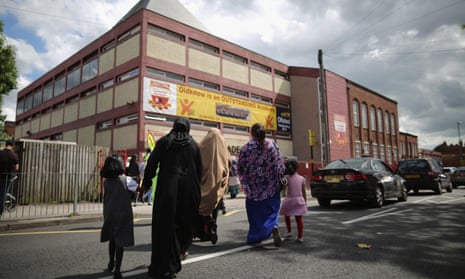Many reacted with disbelief earlier this month to news that the names of whistleblowers in the so-called “Trojan horse” case in Birmingham could be disclosed to ex-headteachers facing disciplinary hearings. But we have learned that the National College for Teaching and Leadership, which runs the hearings, routinely tells teachers or heads facing misconduct charges exactly who blew the whistle.
We were contacted by an individual who says he was visited by the police and asked about “harassment” after he had gone to the NCTL with allegations about a headteacher. An email to him from an NCTL civil servant said: “It is standard NCTL practice to include the name of the referring party [the accuser] in the [accused] teacher’s notification letter.”
This appears to be at odds with government guidance. A 2015 document [pdf] from the Department for Business, Innovation and Skills entitled “Whistleblowing: guidance for employers and code of practice”, says organisations should make “a commitment to take all reasonable steps to maintain the confidentiality of the whistleblower where it is requested”.
Our source had indeed asked the NCTL to protect his identity. In a further email, the NCTL acknowledges that despite this, it did pass his name to the headteacher he was reporting. The headteacher was subsequently cleared of any misconduct.
The whistleblower says the harassment accusation was wiped from his police record only after he challenged it through a solicitor. He says: “Which teacher in their right mind would raise concerns about, say, their headteacher’s conduct if they knew the head could then find out who it was and potentially victimise them? This makes it all but impossible for existing employees to refer matters to the NCTL.”
He does seem to have a point.
The DfE, which is responsible for the NCTL, did not reply to our request for a comment. However, in an emailed response this month to a formal complaint made by our source, it apologised if his requests for anonymity “had not been fully considered” and said that it was reviewing its procedures. This was to ensure that “consideration is given to the interests of referrers”, in other words, those reporting concerns.
DfE fails to publish costs of free schools
Friday will mark two years since the Department for Education – part of a UK government “committed to being the most transparent in the world” – last published details of any discussions by its board.
The last set of minutes, recording a meeting of this key decision-making forum on 27 January 2015, was not exactly the most informative, offering only the brief non-revelation that: “The board held discussions on the work of the department during the parliament.”
However, the DfE says in its official publication scheme – a requirement under freedom of information laws – that details of board meetings will be available as part of “information about our decision-making processes”. We continue to wait.
The non-publication of minutes is not the only area of non-disclosure that might interest readers. It is now also approaching two years since the DfE updated its published information on how much taxpayer cash has been spent on building and site costs for its free schools. The public has been given information on capital costs in relation to only 55 of its 344 free schools, or 16%, with no new disclosures since March 2015.
Even among the 23 free schools that have been open more than five years, two-thirds have still not had any information published by the DfE concerning their site or building costs. Southwark free school, which opened in 2012 and which, the Guardian revealed last week, is likely to close next month, has still not had any capital costs published.
We can understand why the DfE might not want to shout about one-off costs for individual free schools, which in one case are thought to approach £50m. But, given that you and I are funding these projects, the department ought to put its money where its mouth is on transparency.
The DfE did not respond to our request for a comment.

Comments (…)
Sign in or create your Guardian account to join the discussion